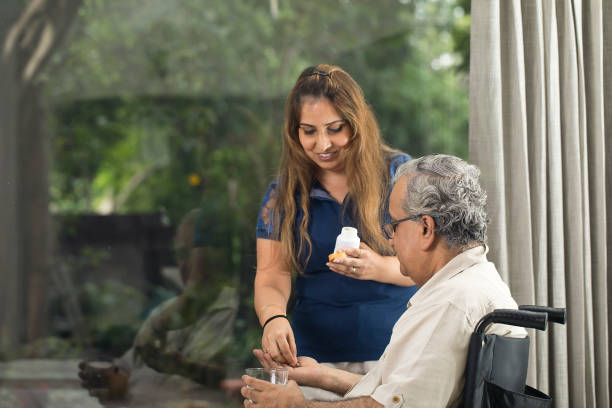The Role of Family in Home Care: A Crucial Support System
Home care, also known as private nursing or home healthcare, provides personalized care to individuals in the comfort of their own homes. While professional caregivers play a significant role in delivering healthcare services, the involvement of family members is crucial to the overall success and well-being of the patient. In this blog post, we will explore the important role of family in home care and how their support and active participation can positively impact the lives of patients and caregivers.
1.Emotional Support and Advocacy

Family members serve as a vital source of emotional support for individuals receiving home care. Their presence and involvement can help alleviate feelings of loneliness, fear, and anxiety. Some key aspects of their role include:
a. Providing Companionship: Spending quality time with the patient, engaging in conversations, and participating in activities that bring joy and comfort can have a profound positive impact on their emotional well-being.
b. Being a Listener and Encourager: Family members can serve as a listening ear, allowing the patient to express their feelings, concerns, and fears. By offering encouragement and reassurance, they play a crucial role in boosting the patient’s morale and overall outlook.
c. Advocating for the Patient: Family members act as advocates for the patient, ensuring that their needs and preferences are met. They can communicate with healthcare professionals, coordinate appointments, and actively participate in care planning to ensure the best possible outcomes for their loved ones.
2.Assisting with Activities of Daily Living

Family members often play a significant role in assisting with various activities of daily living (ADLs) for the patient. These activities may include:
a. Personal Care Assistance: Assisting with tasks such as grooming, dressing, bathing, and medication management helps maintain the patient’s personal hygiene and well-being. Family members’ involvement ensures a familiar and trusted presence during these intimate moments.
b. Meal Preparation and Nutrition: Family members can help with meal planning, grocery shopping, and meal preparation to ensure that the patient receives proper nutrition. This involvement supports the patient’s overall health and contributes to their overall well-being.
c. Mobility and Exercise: Assisting with mobility exercises and encouraging physical activity can help improve the patient’s strength, mobility, and overall physical health. Family members can work in collaboration with healthcare professionals to implement appropriate exercise routines and assistive devices.
3.Medication Management and Healthcare Coordination

Family members play a vital role in medication management and coordinating healthcare services for the patient. Their involvement includes:
a. Medication Administration: Family members can help ensure that the patient takes their medications as prescribed, following proper dosing instructions and maintaining medication schedules. This assistance helps prevent medication errors and promotes medication adherence.
b. Healthcare Communication: Family members act as a liaison between the patient, healthcare professionals, and the care team. They can assist in scheduling appointments, accompanying the patient to medical visits, and communicating important information about the patient’s condition and care needs.
c. Care Coordination: Family members can coordinate the various aspects of the patient’s care, including scheduling appointments, managing medical records, and organizing home healthcare services. Their involvement helps ensure continuity of care and fosters effective communication among the healthcare team.
4.Emotional and Practical Support for Caregivers

Family members also play a crucial role in providing emotional and practical support to the caregivers involved in home care. This support includes:
a. Respite Care: Family members can provide respite care by stepping in to temporarily relieve caregivers from their responsibilities. This break allows caregivers to rest, recharge, and take care of their own physical and emotional well-being.
b. Emotional Support: Family members can offer emotional support to caregivers, acknowledging the challenges they face and providing a listening ear. This support helps caregivers cope with the demands of their role and reduces feelings of burnout or isolation.
c. Assistance with Household Tasks: Family members can assist with household tasks, such as cleaning, grocery shopping, and meal preparation, to alleviate some of the caregiver’s responsibilities. This practical support eases the caregiver’s workload and allows them to focus more on providing care to the patient.
Conclusion
The involvement of family members in home care is invaluable. They provide emotional support, advocacy, assistance with daily activities, medication management, and practical support to both the patient and the caregiver. Their active participation enhances the overall well-being of the patient, promotes effective communication and care coordination, and helps alleviate the demands on professional caregivers. Recognizing and supporting the role of family in home care is essential for creating a holistic and supportive environment that fosters the well-being of the patient and the entire caregiving team.
